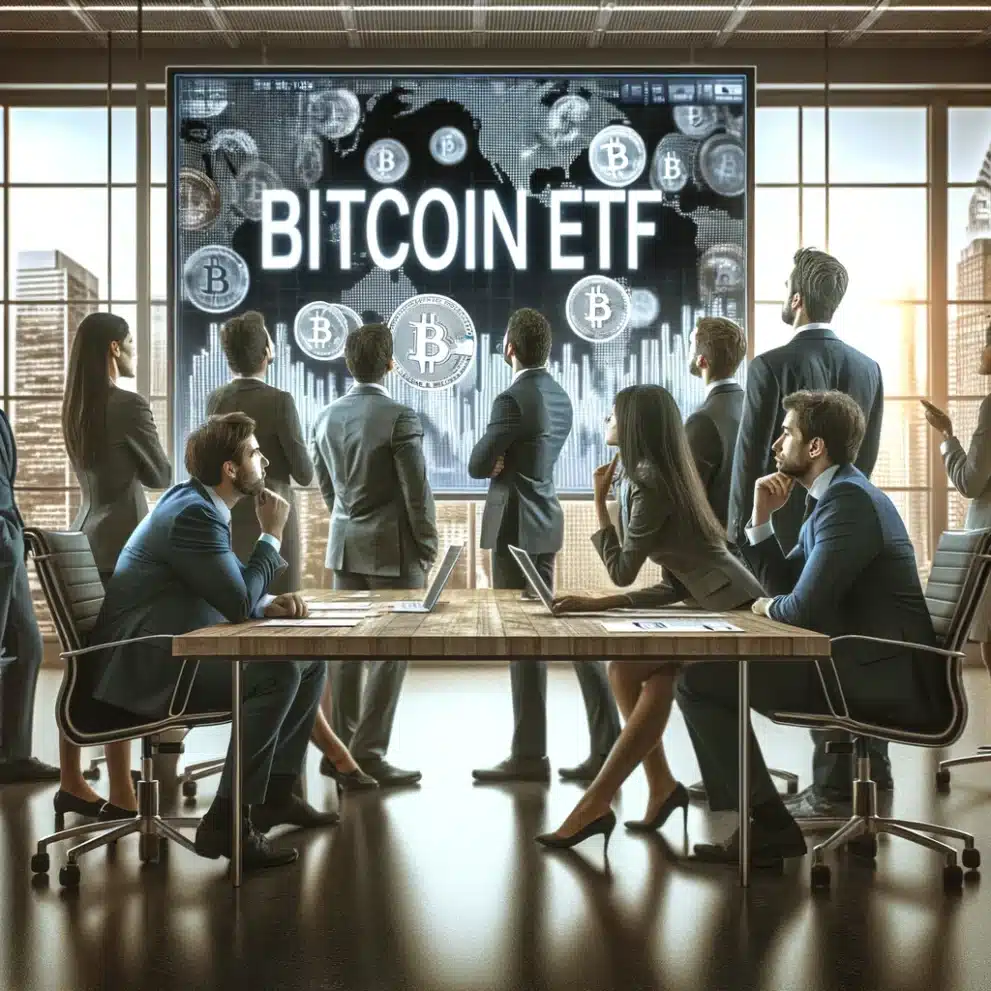
The forthcoming Bitcoin ETF has been a topic of much discussion and speculation, but it also faces several criticisms and concerns. One of the primary criticisms is related to the decentralized nature of Bitcoin and how an ETF, being a centralized financial product, contradicts this fundamental principle of Bitcoin. An ETF is managed by a specific entity, and thus, investors’ ownership of Bitcoin through an ETF depends on this entity, potentially undermining the freedom and security that comes from Bitcoin’s decentralization. This is particularly noteworthy considering the history of scandals and trust issues in the cryptocurrency space, such as the FTX collapse.
Another major criticism revolves around the potential market impact of a Bitcoin ETF. There are concerns about a shortage of “regulated” Bitcoin, as ETF issuers would need to acquire substantial amounts of Bitcoin to hold in their ETFs. This could pose a challenge if the demand for Bitcoin exceeds the available supply from regulated sources. Additionally, the launch of a Bitcoin ETF could impact popular trading strategies, such as the “basis trade,” which exploits the price differences between spot Bitcoin and Bitcoin futures. The basis trade could become less profitable as institutional investors gain direct exposure to Bitcoin through an ETF, leading to a narrowing of the basis.
These criticisms reflect broader issues in the cryptocurrency market, including regulatory concerns and the potential impact of new financial products on market dynamics and investor behavior. As the market awaits the U.S. Securities and Exchange Commission’s decision on Bitcoin ETFs, these concerns highlight the complex and evolving nature of digital asset markets.
Dane Bowler, a Chief Investment Officer and registered investment adviser, argues that a Bitcoin ETF is contradictory to the decentralized nature of Bitcoin. An ETF, being a centralized financial product, requires investors to place trust in a specific entity, which goes against Bitcoin’s “trustless” blockchain concept. This centralization, Bowler suggests, could compromise the freedom and security supposedly offered by Bitcoin’s decentralization.
Better Markets, a non-profit organization, has also been vocal in criticizing the proposed Bitcoin ETFs. They have expressed concerns that these ETFs could expose investors to fraud and manipulation due to the characteristics of the spot bitcoin markets. Their argument is that the bitcoin markets have a history of artificially inflated trading volumes due to manipulation and are highly concentrated, which makes them vulnerable to bad actors. Better Markets’ stance is based on the need to protect investors and the public interest, as they believe the proposed rule changes for Bitcoin ETFs fail to meet the statutory requirements of preventing fraudulent and manipulative acts.
Additionally, there has been some debate within the digital asset community about the potential approval of Bitcoin ETFs. This debate reflects the complexity of balancing investor protection with market expansion, indicating that the decision by the SEC is being closely watched and is of significant interest to various stakeholders in the cryptocurrency market.
Several experts and analysts have expressed skepticism and criticism regarding the potential approval of a Bitcoin ETF.
Markus Thielen, an analyst at Matrixport, predicts that the U.S. Securities and Exchange Commission (SEC) will reject all bitcoin spot ETF proposals in January. He bases this perspective on political dynamics and compliance concerns, noting that SEC Chair Gensler is not very supportive of crypto in the U.S. Thielen argues that despite frequent meetings between ETF applicants and SEC staff, the proposals still fall short of a critical requirement necessary for SEC approval. He also suggests that if bitcoin spot ETF applications are denied, it could lead to a sharp drop in Bitcoin’s price, potentially by around 20%.
Additionally, the article from Cointelegraph discusses the split opinions among experts on how the SEC will handle the Bitcoin ETF decision. Some analysts, like James Murphy of Ludlow Street Advisors, believe multiple approvals are likely on January 10, based on meetings with exchange representatives and legal precedent. However, others, like Thielen, hold a contrarian view, asserting that all proposals fall short of a critical requirement for SEC approval, likely resulting in rejection.
These views reflect the complex and contentious nature of the decision, balancing investor protection with the desire for market expansion in the cryptocurrency sector. As the SEC decision date approaches, the digital asset community remains attentive to the potential outcomes and their implications.
Another expert who has expressed criticism or skepticism about the potential approval of a Bitcoin ETF is Bloomberg Intelligence analyst Eric Balchunas. Balchunas has noted that final agreements with authorized participants will be crucial for the issuers preparing proposed Bitcoin funds. He has emphasized that the SEC is ready to approve spot Bitcoin ETFs only if they have clear language around cash-only creations and have a signed agreement with an authorized participant, which many don’t yet have. This perspective indicates that even if all the crucial requirements are met, there might still be challenges and potential reasons for the SEC to hold back on approval.




 Share
Share Tweet
Tweet Share
Share




Comment